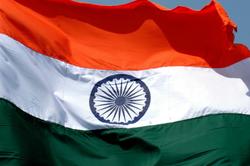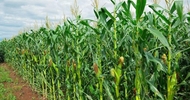Economic Times | 5 March 2012
DHEERAJ TIWARI & RITURAJ TIWARI,ET BUREAU
NEW DELHI:The government has decided to throw its might behind private purchases of farm land overseas to ensure food security for India.
The agriculture ministry has sought views from other ministries on an institutional mechanism to extend sovereign support to India Inc's acquisition of farm land abroad that could include guaranteed buyback of harvest from the cultivation overseas.
Agriculture secretary PK Basu said that the proposal is in a nascent stage. "We had asked Indian Institute of Foreign Trade to conduct a study. As of now there is a debate going on whether the government should get into it or not," he said without revealing if a concrete proposal is under consideration.
However, another senior government official confirmed that the proposal had made progress. "The government may set up a separate cell to facilitate transactions," he said. In fact, the food ministry already has plans on the ground to begin cultivation overseas.
"Already, ministry of food processing is planning to set up a food processing cluster in Africa covering 4-5 countries with investment of around 120 crore," the official said.
India is faced with a big deficit of pulses and vegetable oil, making it vulnerable to price shocks in the global market, at least in the case of pulses.
After dropping in 2010-11 to 2.69 million tones from 3.51 million tones in 2009-10 because of a bumper crop, import is expected to rise to 2.8 million tonne this year because of steadily rising demand. India is the biggest buyer of pulses with over 15% of buys in the global trade.
In Africa there is great potential of cultivating pulses even on waste land. It will be a great ploy to harvest pulses in Africa to put off pressure on pulses import, said Jaishankar Mishra, agriculture scientist. Economists say that land can be bought in foreign countries but the process has to be handled with utmost care.
"Land can be bought in Africa and production of pulses and wheat can be carried out....however the process can be questionable as it can be seen as land grabbing," said Ashok Gulati, Chairman of the Commission for Agricultural Costs and Prices, a body that recommends minimum support prices for various crops. "This has to be handled delicately," he added,
Yes Bank's vice president and country head for food and agriculture, Girish Aivalli said that all countries are looking to set up producing zones outside their geographical boundaries to fight the climate change related volatility in price and production of farm produce.
"If there is some kind of government support to private firms, banks will also provide lending support at easier terms," he said. The bank has so far advised four to five firms for such deals abroad.
BV Mehta, executive director of Solvent Extractors Association said that any support from the government is more than welcome. "We are buying land in Uruguay," he said.
The association has formed a consortium of vegetable oil companies to acquire lands in Latin America to grow soyabean and sunflower.
India is dependent on imports for nearly half of its edible oil needs. India's vegetable oil imports rose 17% to $6.6 billion in 2010-11. The move comes on the heels of the new mineral asset acquisition policy approved by the government in October 2011.
A working group on agriculture production chaired by Haryana chief minister BS Hooda, had also recommended that Indian companies could also be encouraged to buy lands in other countries for producing pulses and edible oils.
DHEERAJ TIWARI & RITURAJ TIWARI,ET BUREAU
NEW DELHI:The government has decided to throw its might behind private purchases of farm land overseas to ensure food security for India.
The agriculture ministry has sought views from other ministries on an institutional mechanism to extend sovereign support to India Inc's acquisition of farm land abroad that could include guaranteed buyback of harvest from the cultivation overseas.
Agriculture secretary PK Basu said that the proposal is in a nascent stage. "We had asked Indian Institute of Foreign Trade to conduct a study. As of now there is a debate going on whether the government should get into it or not," he said without revealing if a concrete proposal is under consideration.
However, another senior government official confirmed that the proposal had made progress. "The government may set up a separate cell to facilitate transactions," he said. In fact, the food ministry already has plans on the ground to begin cultivation overseas.
"Already, ministry of food processing is planning to set up a food processing cluster in Africa covering 4-5 countries with investment of around 120 crore," the official said.
India is faced with a big deficit of pulses and vegetable oil, making it vulnerable to price shocks in the global market, at least in the case of pulses.
After dropping in 2010-11 to 2.69 million tones from 3.51 million tones in 2009-10 because of a bumper crop, import is expected to rise to 2.8 million tonne this year because of steadily rising demand. India is the biggest buyer of pulses with over 15% of buys in the global trade.
In Africa there is great potential of cultivating pulses even on waste land. It will be a great ploy to harvest pulses in Africa to put off pressure on pulses import, said Jaishankar Mishra, agriculture scientist. Economists say that land can be bought in foreign countries but the process has to be handled with utmost care.
"Land can be bought in Africa and production of pulses and wheat can be carried out....however the process can be questionable as it can be seen as land grabbing," said Ashok Gulati, Chairman of the Commission for Agricultural Costs and Prices, a body that recommends minimum support prices for various crops. "This has to be handled delicately," he added,
Yes Bank's vice president and country head for food and agriculture, Girish Aivalli said that all countries are looking to set up producing zones outside their geographical boundaries to fight the climate change related volatility in price and production of farm produce.
"If there is some kind of government support to private firms, banks will also provide lending support at easier terms," he said. The bank has so far advised four to five firms for such deals abroad.
BV Mehta, executive director of Solvent Extractors Association said that any support from the government is more than welcome. "We are buying land in Uruguay," he said.
The association has formed a consortium of vegetable oil companies to acquire lands in Latin America to grow soyabean and sunflower.
India is dependent on imports for nearly half of its edible oil needs. India's vegetable oil imports rose 17% to $6.6 billion in 2010-11. The move comes on the heels of the new mineral asset acquisition policy approved by the government in October 2011.
A working group on agriculture production chaired by Haryana chief minister BS Hooda, had also recommended that Indian companies could also be encouraged to buy lands in other countries for producing pulses and edible oils.














